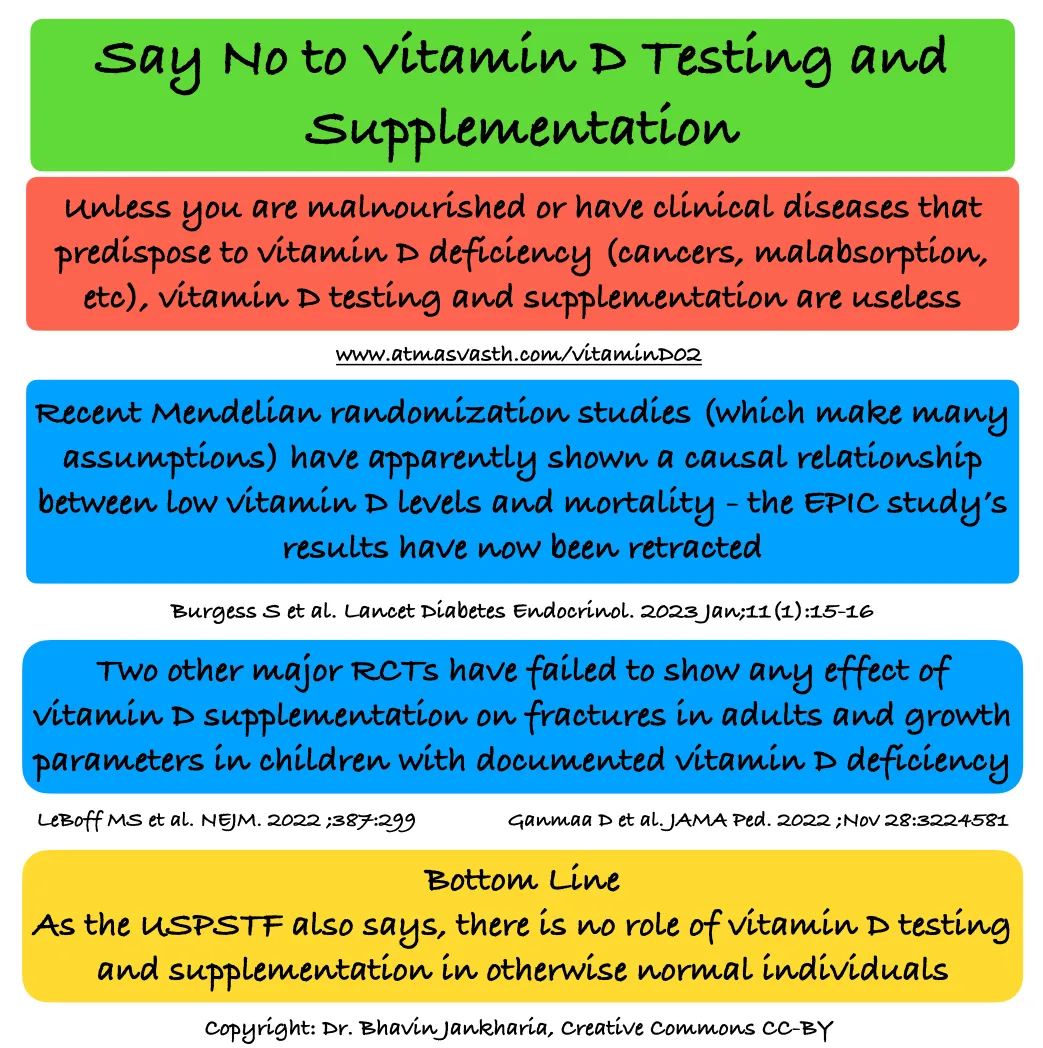Omega-3, PUFA, ALA, EPA, DHA...What is Going On?
The lowdown on Omega-3, n3-PUFAs, ALA, EPA, DHA and supplementation
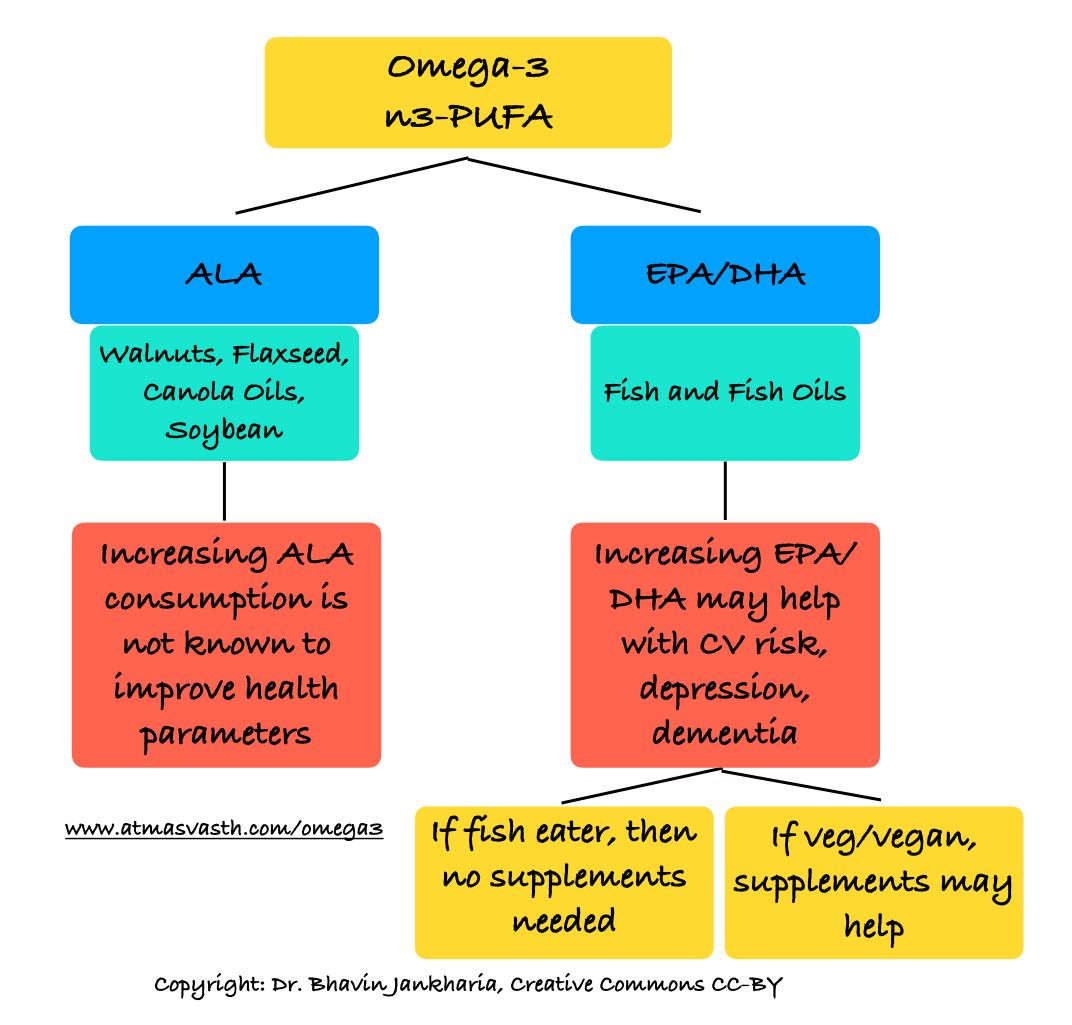
Each day, we are bombarded with information on deficiencies and supplements; vitamin D, vitamin B12, omega-3, other vitamins, minerals like zinc, manganese…there is no end. A lot of this is driven by companies who want to push their products, or influencers and so-called health experts who generally only regurgitate what they have been told or have read in the lay press. However, given that many vitamins and minerals are available as generics and cost less than a “vada-pav”, not every study or paper is colored by commercial interests. Even then, the use of each supplement is associated with some controversy or the other, vitamin D being a classic example, an issue I will address in the near future.
You can listen to the audio/podcast hosted on Soundcloud by clicking the Play button below within the browser itself. You can click here to access directly from your email.
As I wrote about in my vitamin B12 article, there is no real data to suggest that low levels of vitamin B12 in vegetarians or vegans imply a deficiency and hence no real justification to take vitamin B12 as a supplement, a fact I realized only when I looked at the data in more detail.
It is the same with omega-3 supplements.
Omega-3 polyunsaturated fatty acids (n3 PUFAs) are often advised to improve healthspan and lifespan, especially in vegetarians and vegans.
Omega-3 is a PUFA [1], three of which are important medically. The first is alpha-linolenic acid (ALA), which is found in walnuts, flaxseed, soybeans and canola oils. ALA however has not been found to make a difference to health outcomes. The other two, eicosapentaenoic acid (EPA) and docosahexaenoic acid (DHA), which are primarily found in fish and fish oils are the two PUFAs that are sold together or separately as nutraceuticals to enhance our health.
EPAs in high doses, especially the ethyl ester form (icosapent ethyl), have been found to improve cardiovascular health outcomes in one or two trials [2] with conflicting results in other trials [3].
The potential benefits of n-3 PUFAs are
- Cardiovascular health
- Cancer prevention
- Cognition, Alzheimer’s disease
- Depression
- Age-related macular degeneration.
While both observational and randomized controlled trials (RCTs) have shown that either adequate fish intake or adding an EPA/DHA supplement helps improve cardiovascular health or prevent cancer or reduce the rate of cognitive loss or prevent or ameliorate depression, there is no true consensus on the clinical benefits. All the Cochrane analyses, which are detailed meta-analyses of all trials have shown no real benefit of any form of EPA/DHA on cardiovascular outcomes [3].
There could be many reasons for these, including the type of EPA/DHA or the dose or the “at-risk” population being studied [5].
At least for cardiovascular risk, there is a plausible theory that in those who already have adequate EPA/DHA because of their diet, high doses of 2-4 gm / day are needed to reduce cardiovascular risk. If however, you do not eat fish, then perhaps even lower doses will help, because then you have lower omega-3 levels in your blood and can be considered “deficient”. Unfortunately, measurement of omega-3 levels in the blood is not routinely performed to test this hypothesis.
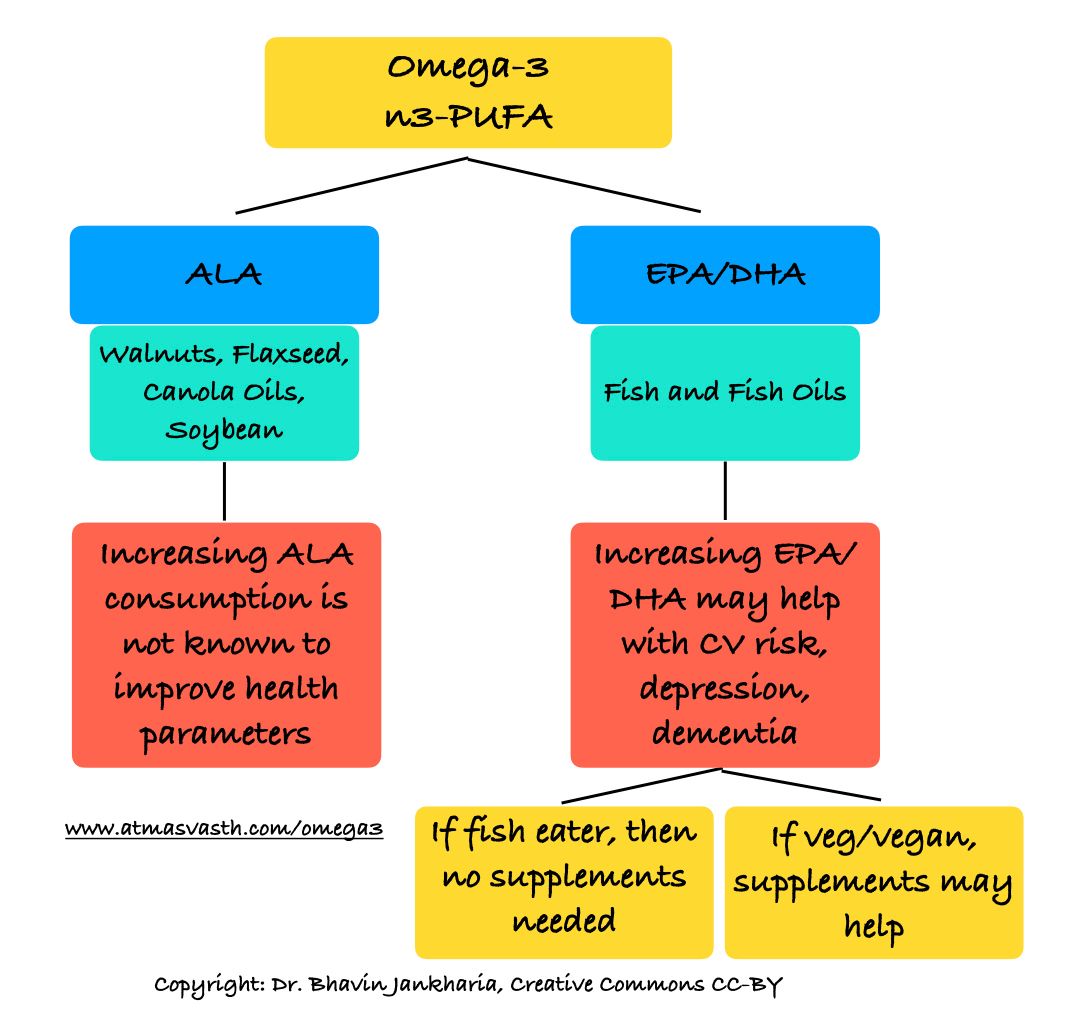
What does this mean for you and I? If you are a meat and fish eater, and have at least two portions of fish per week, then you are pretty much covered as far the intake of n-3 PUFAs is concerned. Additional supplementation is unlikely to help unless you have high triglyceride levels or high cardiovascular risk and standard therapy including statins is unable to reduce the triglyceride levels.
If you are vegetarian, then supplementation with fish oil based EPA/DHA may help, though how much is needed is not definite. If you are vegan, then, adding walnuts or flaxseed to the diet may help.
What is also not known is, if n-3 PUFA supplements help, do they help in concert with physical activity, or are these synergistic or does physical activity trump any additional effect of n-3 PUFA?
There are no particular downsides of adding n-3 PUFA supplements. But, if my attitude with vitamin B12 supplementation is, “if there is no evidence of deficiency, why supplement?”, then the same could be said for omega-3 supplementation.
I am predominantly vegetarian and have a higher cardiovascular risk than usual and so have been taking 1 gm of an EPA/DHA supplement for some time now. However, the jury is still out and if your cardiovascular risk is low, and you are physically active and/or if you eat fish or fish products, you likely do not need EPA/DHA supplementation.
Have a great 2022.
Footnotes
1. https://ods.od.nih.gov/factsheets/Omega3FattyAcids-HealthProfessional/
2. Bhatt DL et al. Cardiovascular Risk Reduction with Icosapent Ethyl for Hypertriglyceridemia. N Engl J Med. 2019 Jan 3;380(1):11-22.
3. Abdelhamid AS et al. Omega-3 fatty acids for the primary and secondary prevention of cardiovascular disease. Cochrane Database Syst Rev. 2018 Nov 30;11(11):CD003177
4. Appleton KM, et al. Omega-3 fatty acids for depression in adults. Cochrane Database Syst Rev. 2021 Nov 24;11(11):CD004692.
5. Elagizi A et al. An Update on Omega-3 Polyunsaturated Fatty Acids and Cardiovascular Health. Nutrients. 2021 Jan 12;13(1):204.
Last Wednesday
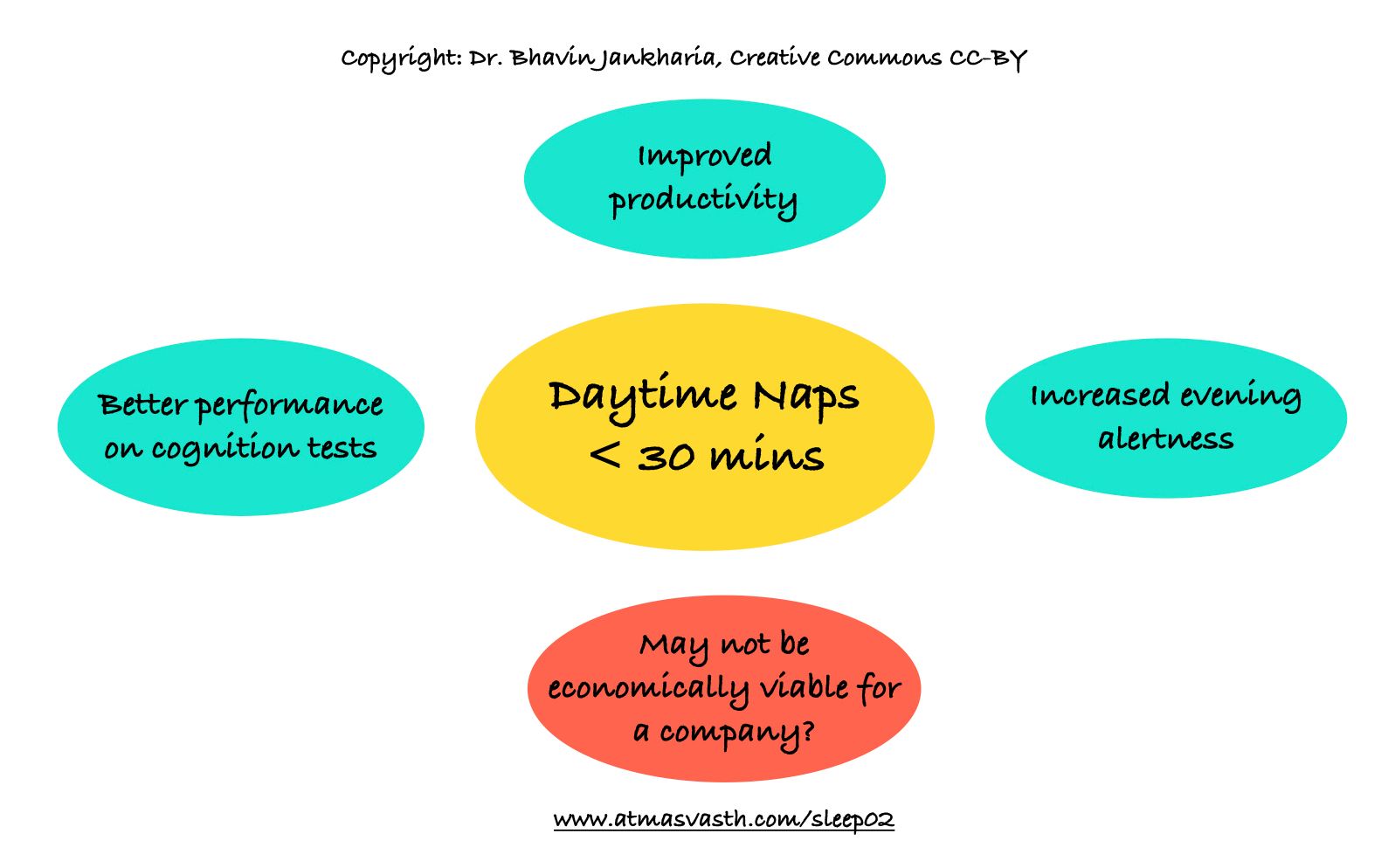
Last Week
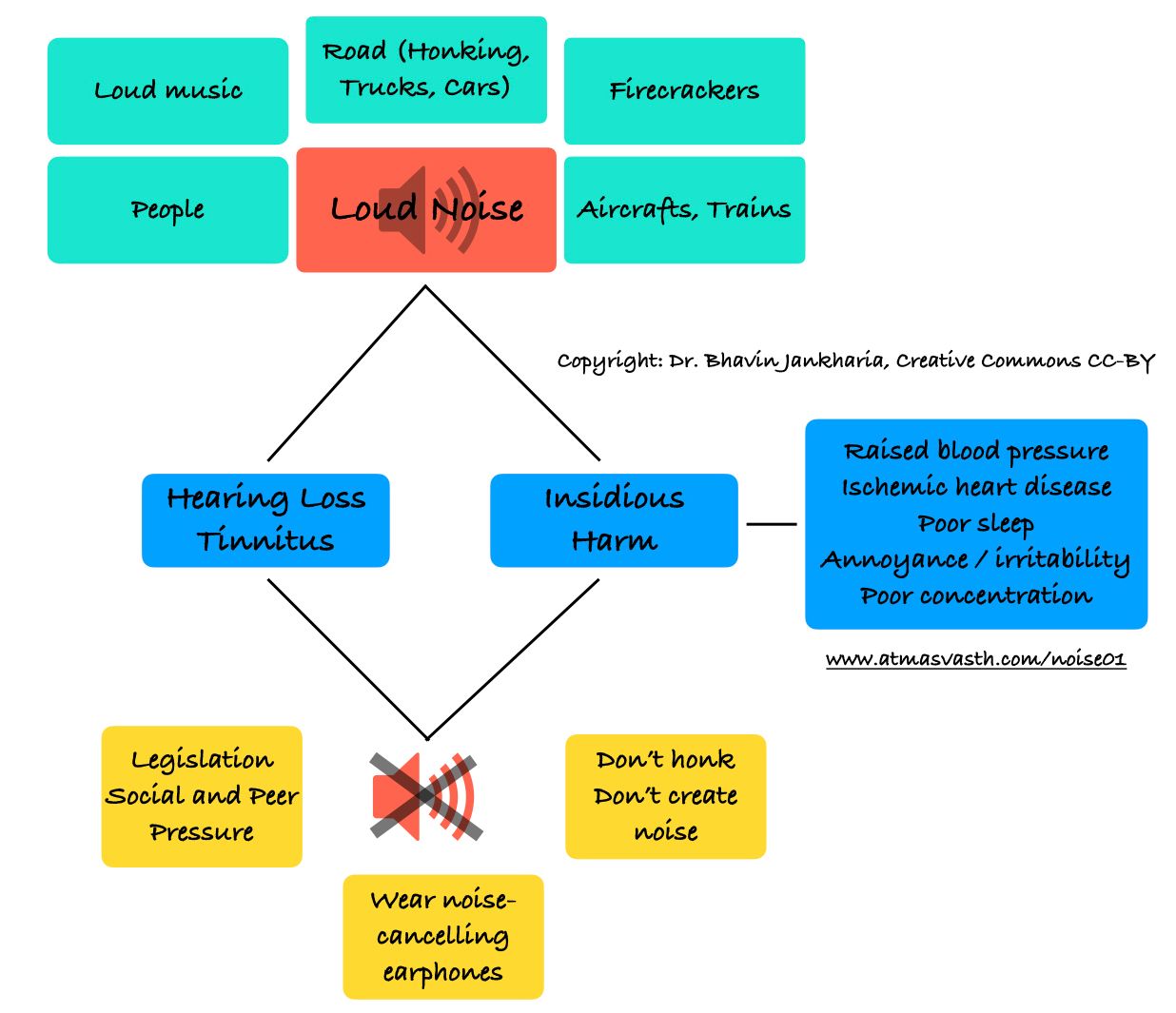
Supplements
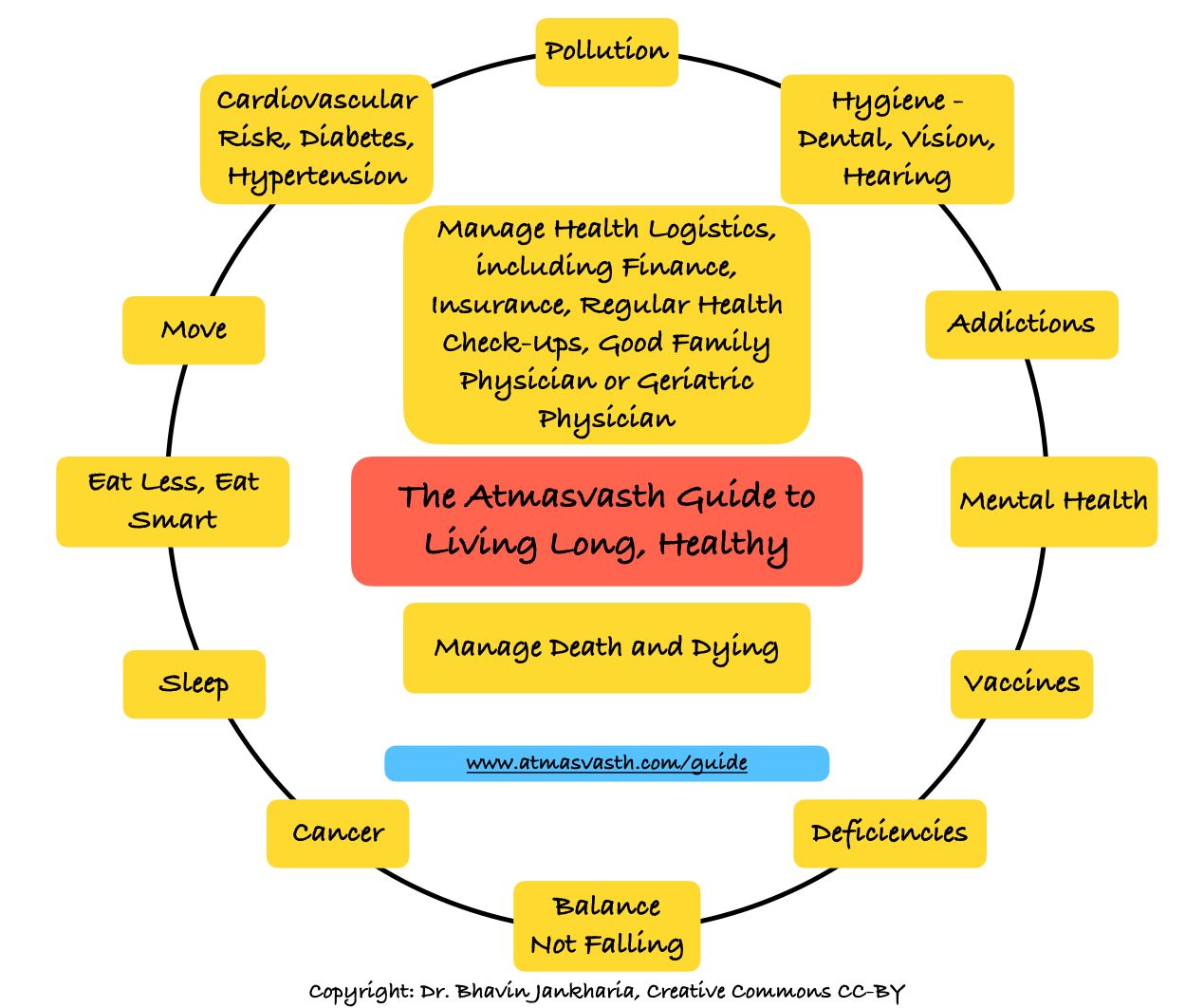
Atmasvasth Newsletter
Join the newsletter to receive the latest updates in your inbox.



